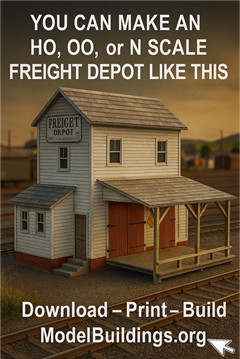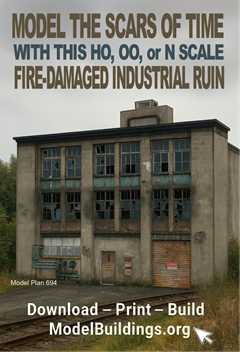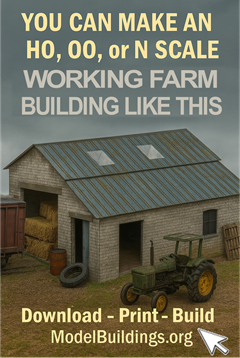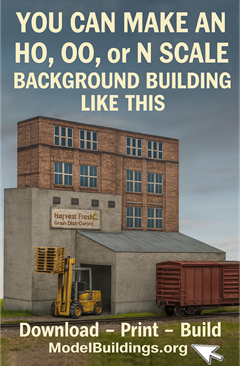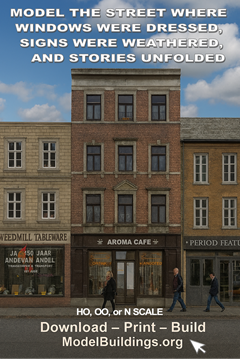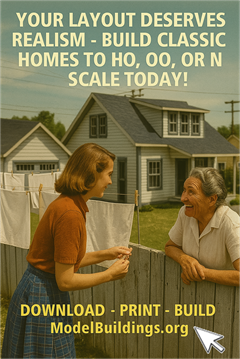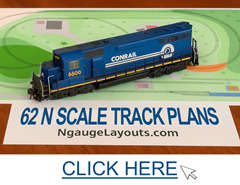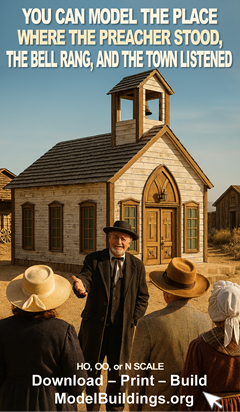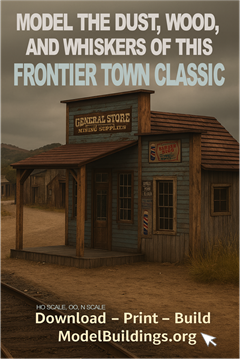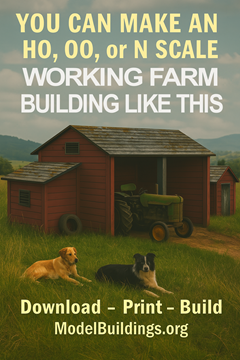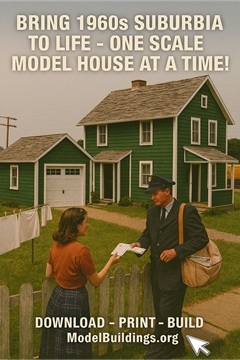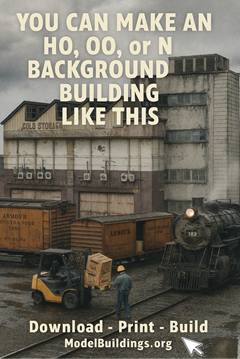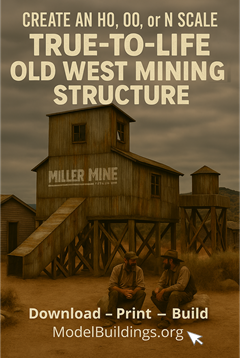Everything on model trains, model railroads, model railways, locomotives, model train layouts, scenery, wiring, DCC and more. Enjoy the world's best hobby... model railroading!
POLL RESULTS: Do you prefer operating freight or passenger trains?
The results of the last poll confirmed what most of us probably suspected:
The Question was – Do you prefer operating freight or passenger trains?
Freight (65%)
Passenger (20%)
I don’t have a layout yet (15%)
Although passenger cars can add greatly to a layout, they are more limited than freight trains in that they usually run the same route with the same cars. Freight trains pull into yards where a lot of switching happens, their loads change, they visit industries, ports, etc – so provide lots of operational possibilities and variations.
“Life-Like” Tall Background Buildings That Take Up Very Little Space – See How To Make Them
Most model railroads include at least one rail yard for very good reasons: they look interesting; they provide plenty of operational options; they avoid bottlenecks that can bring a layout to a stand still; they provide extra storage for rolling stock… I’m sure you can add to this list.
However, having enough space for efficient rail yard operations can be a dilemma without careful planning and effective use of space. That’s where backdrop buildings can be a huge space-saver. Instead of taking up space with “full-sized” 3D buildings, slimmer 3-sided “low-refief” buildings (made from cheap corflute) can be used. These backdrop buildings only need be an inch or two in depth to provide the life-like illusion they stretch full depth. The big advantage is that buildings of this type can allow space for extra yard track. The buildings in this video are a good example.
Find out more on how to make background buildings here
Adding your Comments or Photo to this Blog – EASY!
We’ve listened to the readers who requested a function allowing them to post, not just a comment, but also a diagram or photo when answering a question. Good news! We have resolved the “techie stuff” on how to make it happen, so now this service is available.
To try it out, simply watch this video, because all is explained in simple terms.
IMPORTANT: All comments and photos are forwared to the Blog Moderator for approval prior to publication. This is to prevent spammers from trying to spoil things, and to maintain the highest standard of content. For these reasons, confusing or badly worded questions (and answers) are not published.
PLEASE ALSO NOTE: This blog is a FREE service for the model railroading community. Please support our sponsors, because without their help this blog would not exist. Thank you.
Switching From O Scale to N Scale
Don is about to take a giant leap and asks readers:
“I am thinking about switching from O gauge trains to N gauge because of lack of space. Which brand of trains do you recommend as I know nothing about N gauge trains. By the way train video looks great.”
POLL RESULTS: What scenery theme do prefer to model?
The latest poll asked: What scenery theme do prefer to model?
- Results were as follows:
- Countryside – 28%
- Mountain Range – 21%
- Industrial – 18%
- Urban – 14%
- Woodland – 10%
- Rolling Hills – 5%
- Waterways – 3%
- Desert – 2%
Total Voters: 392
Model Railroad Shipping Container Junction
 These days steel shipping containers have a multitude of uses including adapting them to make homes, self-storage units, and even jail cells in some countries. However, they are still mainly used for transporting goods around the globe (by ship) and around the country (truck and rail).
These days steel shipping containers have a multitude of uses including adapting them to make homes, self-storage units, and even jail cells in some countries. However, they are still mainly used for transporting goods around the globe (by ship) and around the country (truck and rail).
Intermodal containers are a common sight, so fit well into most modern railroad layouts either on flatcars, double-stack container trains, on the back of trucks, stacked up in rail yards, at ports, alongside factories and warehouses, or just stacked up alongside the track as seen in this photo. Fortunately they are cheap and easy to make, and look very authentic if you use these photo realistic downloadable designs.
How to Cut Flex Track
Kerry asks readers:
“I am using a small hack saw to cut my flex track to fit the HO layout I am working on. This seems to be not a good method. Is there some other way to cut the track for a good fit?”
Critical Layout Building Mistakes To Avoid
This 2 minute video has some important tips for those planning to build a layout. The free report can be downloaded here http://www.modelrailroadhub.com/free.html There is no form to fill in to get the free report…. you can just download it and even share it with friends.
Dampness a Problem in Garden Shed OO Gauge Set Up
George asks readers for advice:
“Hi guys; any suggestions for keeping dampness and your rust of first time track set up in my 8×10 shed? I intend to take in all trains and wagons etc inside for the winter months, but I’m a wee bit concerned about track being out in my shed during the winter. Please can you help? Kind regards. George. P.S. I love reading your model train blog. keep up the good work.”
DCC and EZ Track for Christmas Layout
Jim asks readers:
“I have a Christmas HO layout using EzTrack around the tree and parts of living room.How many feet of track if any, will a simple 1 watt Dcc transformer support without jumper contacts. I will be running a single Broadway Limited Paragon 2 loco. Thanks, and Happy Thanksgiving to all.”
How to Fix Problem with Loco Running Over Points
Stuart
“I have a problem with several older 00 (4mm) locos running on DCC over points where they sometimes stall. I understand that there are ‘stay alive capacitors’ available to overcome this problem. My question is:- do these work and if so how are they connected in relationship with the decoder? Look forward to any members ideas/experience. Many thanks.”
H & M Turnout Switches
Bill asks readers:
“I have old H & M turnout switches made in England, does anyone know how to wire them up? Thanks.”
Benchwork Question
Gary works in O scale and asks readers:
“What is best to put on the wood table first. Homasote or what. Is anything needed?”
Using Cork Under The Rails?
Douglas asks readers for advice:
“I have an old ping pong table that I used for the base of my HO layout. I have placed a 1″ form board over all of it. Do I need to use cork for under the rails?”
Loco Stops and Starts
16 year old Jonty is new to the hobby and would like some advice from some wise older minds:
“My Bachmann loco (the only loco I have so far) is running funny on the points and straight track. I am saving to buy a second one but want to try and fix this one first. How?”
How to Clean Rail Heads
Ted H asks readers:
“I use a track rubber to keep my rail heads clean but it is a messy process and leaves a lot of unwanted deposits for me to vacuum up. Is there a better method?”
Simple Siding Scene Seduces
This little scene (from the Brisbane Model Train Show) shows how simple ideas are sometimes the best. Although there are just 4 workers, a wagon, a vehicle, a shed, and a small piece of machinery… the scene takes up very little space yet really draws the eye in to see what’s going on. To add even more interest, some of the elements could be animated to show some movement and further captivate attention… more on that in coming weeks.


